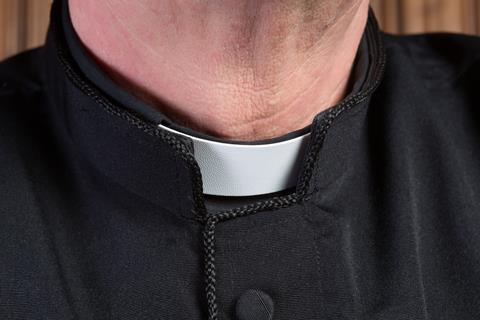Church of England clergy have asked for a pay rise for the first time in history. They're asking for a 9.5 per cent increase in their stipend. Lucie Walsh explains why its so needed

What right do clergy have to ask for more money?
Relative to many families, clergy households are not so badly off. We generally have everything we absolutely need.
As a child I had very little by way of food and clothing. Now that I’m a vicar’s wife, I’ve never been so well off! Of course, we’ve noticed the difference in the cost of living and those leftovers from church flowing into the vicarage cupboards have become even more welcome. But we aren't facing the same hardships as some.
The truth is that generous parishioners have actually been subsiding clergy families for far longer than a cost of living crisis has existed. "It's so the food doesn't go to waste", we're told as a food parcel is handed to us at the end of an evening meal. But I wonder how many understand that clergy households really need this help.
Clergy are not immune from the cost of living crisis. We shop in the same shops and have had the same rising energy prices as everyone else.
Our friends can turn to additional jobs, overtime and business ventures to bring in a little more money. But many clergy families are limited in choices when it comes to how to increase our income. Many clergy partners report taking on the lions share of household tasks while their clergy person routinely works 60 hours a week or more.
I want to spare my own children the difficulties of going without. At the current rate of stipend, I can’t be sure.
The demands on clergy partners of ‘helping’ at church also take up time that can’t be dedicated to paid employment. While we don’t have to volunteer, the implications for the household if the incumbency fails are severe. On top of the sacrifices many clergy partners make to their own careers, there is also limited possibility of advancement for the clergy person. Many families in the UK rely on that promotion or a few hours overtime to pay for school trips, Christmas gifts or music lessons, an option which is not open to clergy.
Clergy families have been turning to charitable grants and support for generations to help top us up for those extra family needs. In a survey by Clergy Family Network, 45 per cent of clergy partners asked for more information on financial support, by far the most popular request. 18 per cent of clergy households relied on grants from Clergy Support Trust last year, funding everything from glasses to emergency trips to visit sick relatives, particularly difficult as many of us must live far away from parents and grandparents.
Our stipends are meant to provide enough to ensure clergy households aren’t worried about money, to live a modest but good life. While a family holiday isn’t absolutely essential, it is not an easy existence without one. What comment on life do we make if we assume clergy families do not need to afford such small luxuries? Having had many childhood summers without a trip away I can confidently say that money, while not buying happiness, does a fairly good job at keeping misery away. This is especially true in a role that makes taking time off at home difficult as we are still in the Parish. I want to spare my own children the difficulties of going without. At the current rate of stipend, I can’t be sure.
The Church of England has an opportunity to lead by example. A chance to make a statement about what we fundamentally believe, about the value of living a life without fear of running out of money, or being one disaster away from panic. The Church of England should be at the forefront of calling for policy which eradicates poverty and promotes financially healthy households for all in our communities and parishes. We are in a far better position to do so having done so for our own already. Clergy and their families, like everyone else, should have the opportunity to thrive, not just survive.



































No comments yet